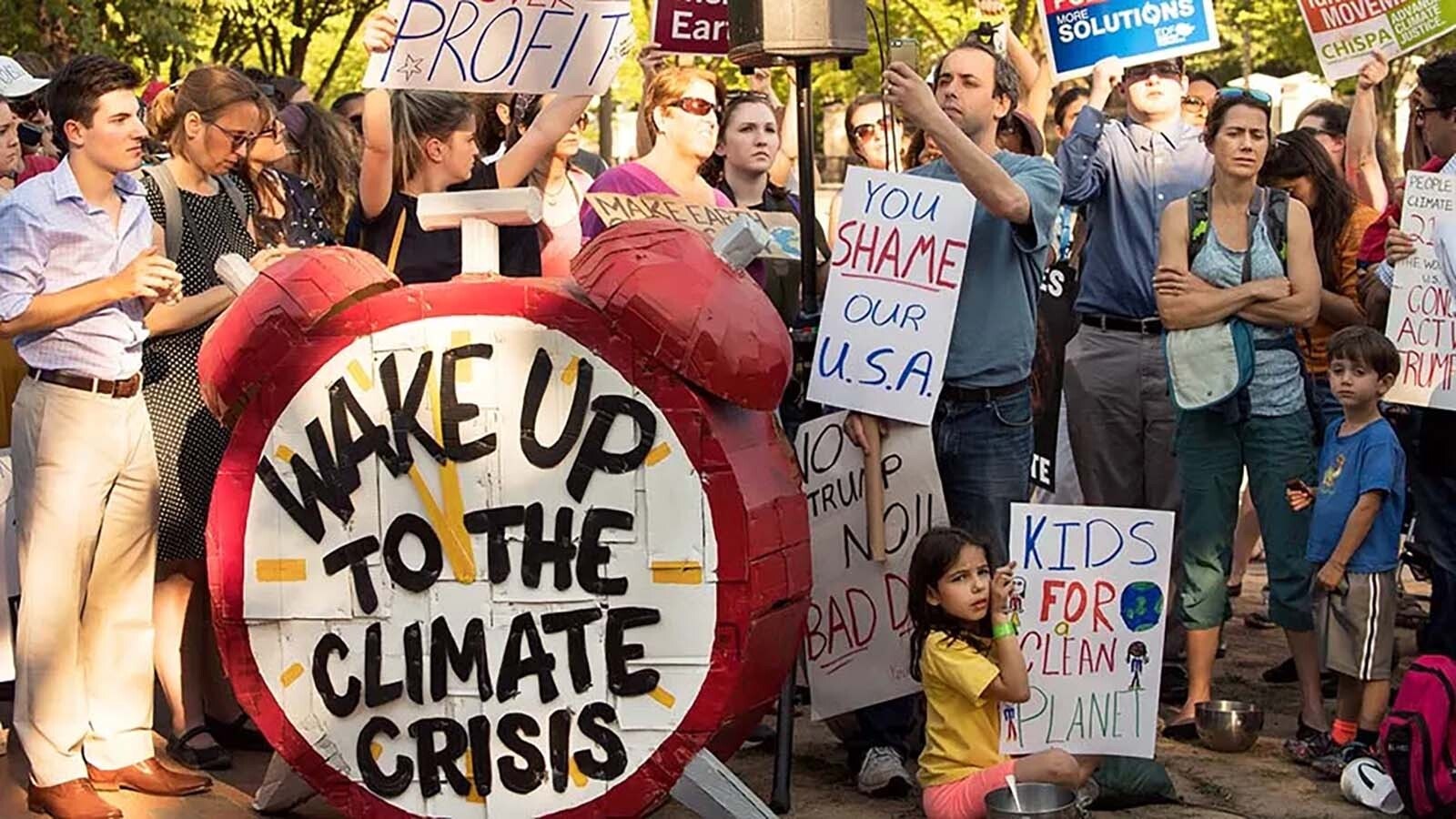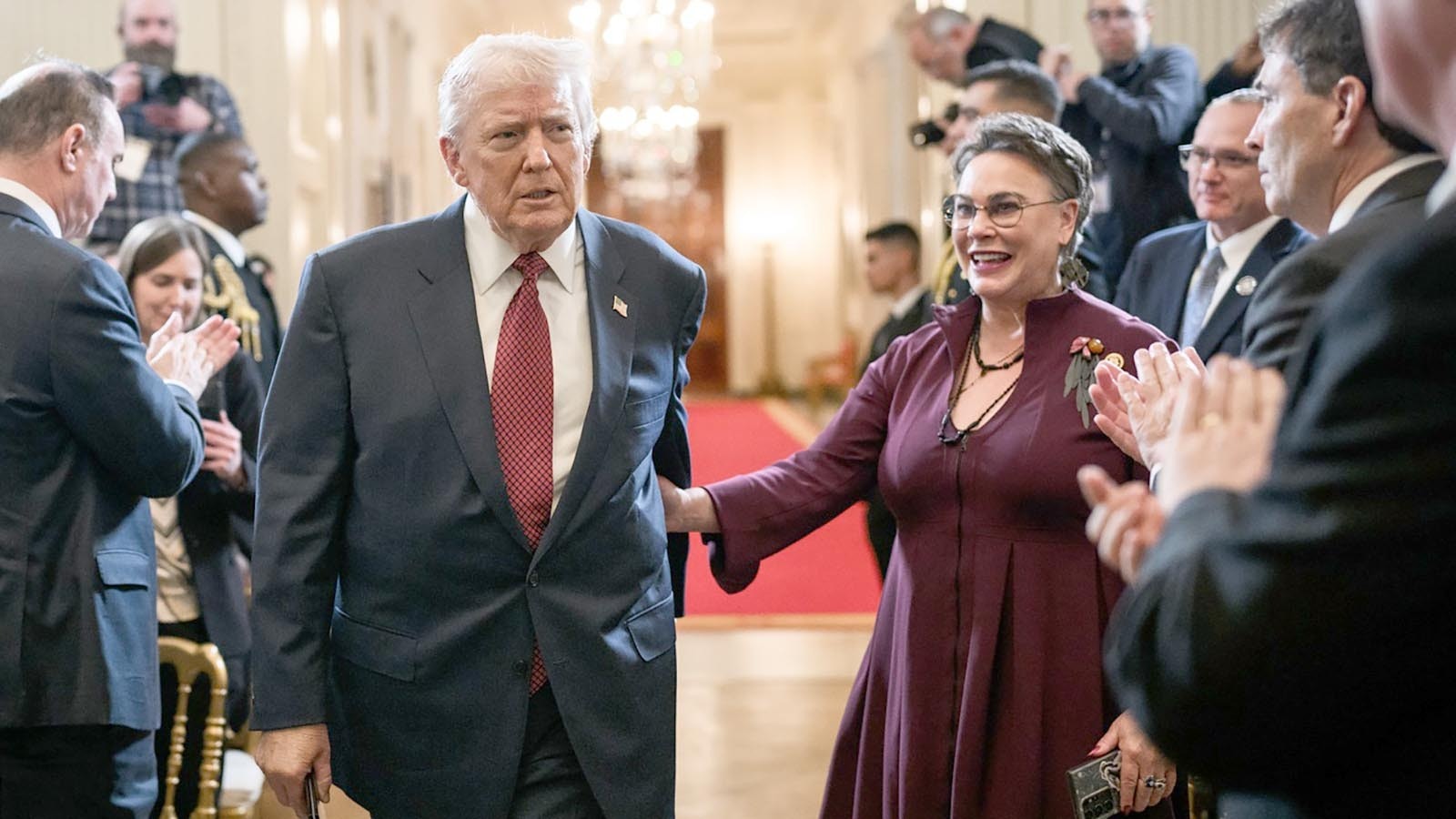On any given day, a Google News search for “climate” will turn up a list of articles connecting recent natural disasters to climate change, articles on research concluding dangerous impacts from climate change and stories favorable to renewable energy.
Only the odd article will be critical of the idea that climate change is producing a crisis or that wind and solar energy can easily replace fossil fuels.
One reason for this monoculture of perspectives on climate change and energy is because many major media outlets receive funding directly or indirectly from billionaire foundations and donors who are dedicated to the elimination of fossil fuels.
These are key outlets with a large reach, and they are likely influencing coverage in smaller outlets.
Rockefeller Funding
The Washington Post, for example, announced in 2020 that it was partnering with the Rockefeller Foundation to advance “a major paradigm shift” in its coverage of food systems, public health, capitalism and climate change.
The Rockefeller Foundation, which has nearly $4.5 billion in gross receipts and $7.5 billion in assets, according to Guidestar, aggressively advocates for the elimination of fossil fuels and for them to be replaced with wind and solar energy.
It is also one of the most vocal proponents of the fossil fuel divestment and environment, social and governance (ESG) movements.
The organization was one of the anti-fossil fuel organizations that pledged $8 million over three years to The Associated Press to cover “climate issues,” which funded about 20 climate reporter positions at the outlet.
Reporting from The Guardian also has received grants from the Rockefeller Foundation
A 2018 study found that 19 major foundations provided significant funding to opposing the fossil fuel industry and promoting renewable energy.
Covering Climate Now
The Rockefeller Foundation also is one of the funders for Covering Climate Now. The organization was co-founded by the Columbia Journalism Review and the far-left publication The Nation, in association with The Guardian.
More than 500 news and media outlets partner with the organization, which represents an audience of 2 billion people in 57 countries. Its partners include big names like ABC News, CBS News, Reuters, The Boston Globe, The Miami Herald and The San Francisco Chronicle.
According to the group’s website, it “collaborates with journalists and newsrooms to produce more informed and urgent climate stories, to make climate a part of every beat in the newsroom.”
“Covering Climate Now is really a grassroots advocacy group for journalists,” Dan Schneider, vice president of Free Speech America, told Cowboy State Daily.
Free Speech America is part of the Media Research Center, which aims to counter left-wing bias in the news media and popular culture.
Messaging
Covering Climate Now is a resource for reporters of all news beats, but it goes further than just sharing content and information. It also provides tips for creating uniform messaging on climate change and energy policy.
For example, “Best Practices for Climate Journalism” provides tips on how to maximize the impact of the climate beat. It encourages reporters to connect climate change to every extreme weather event, include climate change in every beat — even sports — and promote wind and solar energy as the solution to climate change.
It also warns not to platform “climate denialists,” which would include anyone who would “deny the need for rapid, forceful action” or anything that would “ridicule climate activism.”
In “10 Climate Change Myths Debunked,” Covering Climate Now lists out on each “myth” it disputes language that reporters should use to counter any comments or information that the organization deems unacceptable.
Blurring Lines
Schneider said that Covering Climate Now blurs the line between advocacy and journalism.
“What this really reflects is the death of journalism. It used to be that reporters followed certain ethics rules. Now, reporters have adopted the agenda of the left, for the most part,” he said.
It’s not just conservatives who question the appropriateness of the organization’s tactics.
Dr. Roger Piekle Jr., professor of environmental studies at the University of Colorado at Boulder, told Cowboy State Daily that Covering Climate Now is an advocacy group funded by billionaires.
While disputing the alarmist presentation of climate science, he has also written supportively on making accommodations for transgender athletes in mainstream sports.
Covering Climate Now, Pielke said, “coordinates and directs how climate should be covered and many media outlets simply repeat what this organization tells them to write.”
He said it’s a worthy goal to promote action on climate change, which he argues could become a serious problem by the end of the century, but advocacy and journalism should be separated.
“I may be old school, but this is about as far from journalism as one can get,” Pielke said.
CCN Response
Mark Hertsgaard, the executive director of Covering Climate Now, told Cowboy State Daily that these characterizations of its activities and funding sources are based on inaccurate information.
He said the truth is that the organization is a global collaboration of hundreds of news outlets, all of which retain complete editorial independence to run, or not to run, whatever coverage they choose.
“There is no ‘editorial line’ within Covering Climate Now, except on one point: no denial of climate science,” said Hertsgaard, who is author of “Hot: Living Through the Next Fifty Year on Earth.”
He said that the organization is run by journalists who are not advocates and their funding sources exercise no influence over its editorial decisions.
Caving To Pressure
While the organization may not exercise editorial control over its partners, its influence can be seen in news searches on energy and climate. It can also be seen in the reactions that outlets receive when they dispute a connection between climate change and a natural disaster.
ABC News, one of the Covering Climate Now partners, published an article Aug. 14 headlined “Why Climate Change Can’t Be Blamed For The Maui Wildfires.”
Influential climate journalist Emily Atkin was among the many climate alarmists who attacked the publication for daring to suggest that climate change wasn’t the cause of the fires. Eventually, ABC News caved and updated the headline to suggest that climate change amplified the event.
We now know that climate change had almost nothing to do with the fires.
Won’t Tell You
Pielke said that reporting on climate often departs significantly from the consensus assessment of the scientific community, most notably those of the International Panel on Climate Change (IPCC), the World Meteorological Organization and the U.S. National Oceanic and Atmospheric Administration (NOAA).
The way in which Covering Climate Now encourages reporters to connect every extreme weather event to climate change is an example of this.
On his “The Honest Broker” Substack, Pielke has a series of articles on “What The Media Won’t Tell You About …” Each article covers a different type of natural disaster, from hurricanes to wildfires.
While climate change is not ruled out entirely as an influence in every extreme weather event, the articles demonstrate that there’s a lot of uncertainty and nuance about the relationship between greenhouse gasses and extreme weather.
In his articles on hurricanes, Pielke explains that the scientific consensus on the storms and climate change is clear and consistent.
“In short — trends in hurricane activity outside the range of documented variability have not been detected, nor is there high confidence in connections of hurricane behavior to greenhouse gas emissions,” Pielke writes.
Pielke backs this up with statements from NOAA and the IPCC, with links to the sources. He notes that there are effects that are hypothesized, meaning they aren’t proven conclusively, and he criticizes reporters for equating hypothesized effects with conclusions.
Climate Misinformation
Despite the uncertainty between the connection of human-caused climate change and hurricanes, Covering Climate Now recommends reporters make a connection between the two.
“Climate change intensifies … hurricanes, making them more severe,” the organization explains in an article on extreme weather, which asserts that “scientists overwhelmingly agree that human-caused climate change makes weather more extreme.”
Many media outlets reported that Hurricane Idalia that made landfall in Florida last month was “unprecedented.” The Guardian was among the outlets promoting this climate misinformation. In fact, Florida was hit by a storm of similar intensity in 1896, long before any significant carbon dioxide emissions.
At some point, The Guardian changed its headline to make no mention of the storm being unprecedented, but the article quotes the National Hurricane Center making the false claim.
Pielke has published extensively in the peer-reviewed literature on extreme weather and climate change, and he is among the most published and cited researchers on U.S. hurricanes and their impacts. He said he’s rarely contacted for interviews.
“I'd love to hear from climate reporters why they report the way that they do, but none will speak with me,” Pielke said.
Bad Information
Some of the messaging that Covering Climate Now encourages reporters to follow are explained in a context that makes it seem the statements have no legitimate dispute to ever be considered.
In the article debunking 10 myths, it claims that it’s wrong to say we can’t live without oil. It states that the idea that a healthy environment and a healthy economy can’t go together is a “pernicious myth” that fossil fuel companies promote.
In fact, developed countries generally have the highest rates of fossil fuel use and lowest emissions in the world because they can afford the technologies to make fossil fuels burn cleaner.
The U.S., for example, hasn’t increased its carbon dioxide emission since 2005, whereas China has doubled its carbon dioxide emissions.
The article also claims that renewable energy makes it possible to leave fossil fuels behind.
In fact, no population of at least 10,000 has ever successfully powered its electricity grid, much less its industry and transportation sectors, entirely on wind and solar.
It also claims that wind and solar cost less than fossil fuels. This is also misleading.
The same article claims it’s a myth to say an increase of 1.5 degrees Celsius over pre-industrial levels is no big deal. While global warming is a problem to be addressed, there is no great catastrophe that will occur if we pass 1.5 degrees of warming.
Writing in The Conversation, lead author of the IPCC report, Myles Allen, asked activists to stop saying that “something globally bad is going to happen in 2030,” which was when the IPCC projected we’d pass the 1.5 degree target. Allen said the IPCC does not draw a boundary “beyond which lie climate dragons.”
Climate Campaigners
Schneider said that Covering Climate Now is a symptom of a much larger problem in the media.
“There's a collusion between big media, big tech and big government,” he said. “This cabal is threatening the very purpose of our nation's founding. Our country was founded on the idea that individuals could participate in self-government.”
Pielke said he often hears from readers of his Substack articles who are surprised to learn that the IPCC and other scientific data don’t support much of the alarmist tone on climate change that they read in the media.
“Why climate reporters play a role more like climate campaigners rather than journalists is puzzling,” Pielke said.





